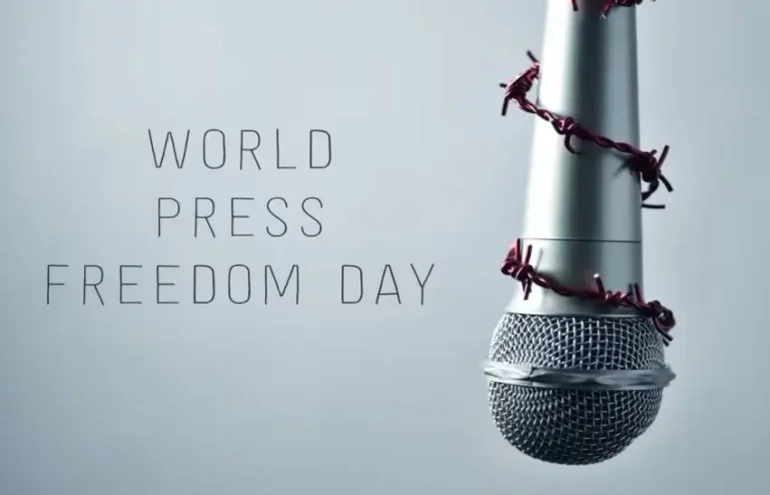As the world celebrates World Press Freedom Day 2025, we take this chance to reflect on the value of independent journalism, honor media workers who face threats and violence, and examine the state of press freedom globally.
World Press Freedom Day 2025 comes at a time when AI is rapidly reshaping how news is produced, distributed, and consumed. We have all seen what happened in the past year. While AI brings undeniable benefits, it also presents new risks that threaten the integrity of journalism and the safety of media professionals.
AI is already transforming how content creators and journalists work. From generating story drafts to analyzing large data sets and automating transcriptions, AI tools offer efficiency and speed. In Kenya, bloggers and digital content creators are increasingly turning to these tools to meet audience demands, manage online platforms, and expand their reach.
However, as much as AI offers opportunity, it also brings complex challenges such as the rise of deepfakes, AI-generated misinformation, and automated content farms that makes it harder for audiences to distinguish between truth and falsehood. When false narratives spread faster than verified news, the credibility of journalism is weakened and trust in the media erodes.
Moreover, AI systems, particularly those used in social media algorithms, often determine which content is seen or buried. This silent form of gatekeeping can suppress independent voices, amplify harmful speech, and distort public discourse. Without transparency, these systems can become tools of manipulation and censorship, undermining both free expression and democracy.
Undeniably, the risks go beyond content. Journalists are increasingly exposed to surveillance through AI-powered technologies such as facial recognition and data tracking. In Kenya, where press freedom is already under pressure, these tools are on a daily basis being used to monitor, intimidate, or silence critical voices. The danger is especially high for freelance journalists, whistleblowers, and human rights defenders going by the number of arrests and abductions in the past year.
Digital expression also keeps growing through blogs, podcasts, and social media platforms such as TikTok and there’s need for better laws and policies that govern the Internet space and also protect the rights of content creators. Unfortunately, legislative attempts such as the ICTA Bill have raised concerns about state overreach and control over digital spaces. The unchecked use of AI technologies could make these concerns even more urgent.
A Call for Ethical, Transparent, and Inclusive AI
This year’s World Press Freedom Day calls for AI systems to support journalism and not replaces it, distorts it, or threatens it.
Policymakers must develop ethical frameworks that guide the use of AI in the media sector, ensuring transparency, inclusivity, and accountability. This time, tech companies should open their algorithms to scrutiny and stop prioritizing profit over public interest. While Journalists need the tools and knowledge to navigate this new digital environment safely and effectively.
In addition, the public needs greater media and digital literacy to recognize misinformation, understand how algorithms work, and demand transparency from both media platforms and governments.
Defending the Future of Journalism
We believe in the power of independent voices and digital creators to inform, educate, and hold power to account. Over the years, we have been:
-
Advocating for policies that protect digital rights and freedom of expression.
-
Conducting fact-checking and digital safety trainings across the country.
-
Engaging with journalists, bloggers, and civil society to monitor threats to press freedom.
-
Building awareness about emerging technologies and their societal impact.
World Press Freedom Day 2025 reminds us that press freedom is not just about access to information it is about ensuring that those who report, write, and tell our stories can do so without fear, bias, or interference.
